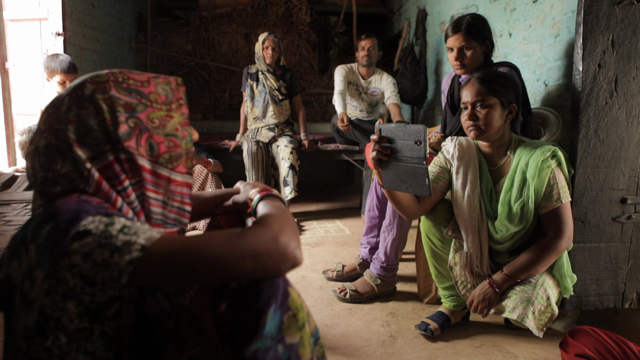The countdown is on until the 2022 Castlemaine Documentary Festival, set to feature at the Theatre Royal from July 1-3.
The theme for this year’s event is ‘Realise the Possible’ and the team behind this year’s event has once again gone above and beyond to source an array of films that feature ‘Real stories. Real issues. Real characters. Real conversations’.
Festival director Claire Jager said many of this year’s films tackled the big, hefty ideas that consumed us and were told through the distinctive and intimate lens of each filmmaker’s vision.
“True stories about people who create change, who are driven to rebel. They help us to see what is possible, telling us real stories with all the drama and complexity that we humans face,” Jager said.
A fine example of this is Writing With Fire, which will screen on Saturday July 2 at 1.30pm and is a rousing documentary about tenacious grassroots reporting and galvanising resistance.
Armed with smartphones, a fearless group of trailblazing journalists from India’s only women-led news outlet risk it all, including their own safety, to confront social injustice while fighting for marginalised voices in the world’s largest democracy.
Chief reporter Meera and her journalists break traditions, be it on the frontlines of India’s biggest issues or within the confines of their homes, redefining what it means to be powerful.
Born into an impoverished Dalit (‘low caste’) family and married at 14, Meera went against her conservative culture to study and become a journalist.
Meera leads her team of 28 semi-literate, professionally trained reporters, to transform the newspaper into a regional digital news force.
As her team experiences its first taste of digital democracy, their video stories on corruption, violence against women, broken roads and inadequate public healthcare begin to become popular, unsettling bigger news agencies that are run by men.
In the film, we see this journey – fraught with threats, danger, hope and sacrifice – through the eyes of our central protagonist Meera and her feisty protégé, Suneeta.
Directors Rintu Thomas and Sushmit Gosh say Writing With Fire is a story of our times.
“It is the first time modern Dalit women will be seen on screen, not as victims of their circumstances but as writers of their own destiny,” they said.
“India is a deeply complex country. For over 3000 years, we’ve had a social hierarchy in place that divides Indian society into four distinct groups of people, known as the caste system.
“Like racism, it is a system of exclusion but only worse, because caste is invisible.
“A person is considered a member of the caste they are born into and remains within that caste till their death, caste sticks to the deepest part of your being – your identity,” the directors said.
The film will be followed by a panel discussion led by moderator and long-time Castlemaine arts broadcaster Suzanne Donisthorpe. She will be joined by artist Tracey Naughton and lecturer and documentary practitioner Shweta Kishore.
Naughton’s foundation interest is in textiles arts, public art and technology, specifically the content it carries, as a means of fostering democratic participation, communication and development.
Kishore lectures in Screen and Media at RMIT University and is a documentary practitioner and author of Indian Documentary Film and Filmmakers: Independence in Practice (2018). Shweta’s research focuses on Indian documentary, feminist film, and film festivals.
To secure your tickets for Writing With Fire and other C-DOC screenings visit the website at cdocff.com.au








